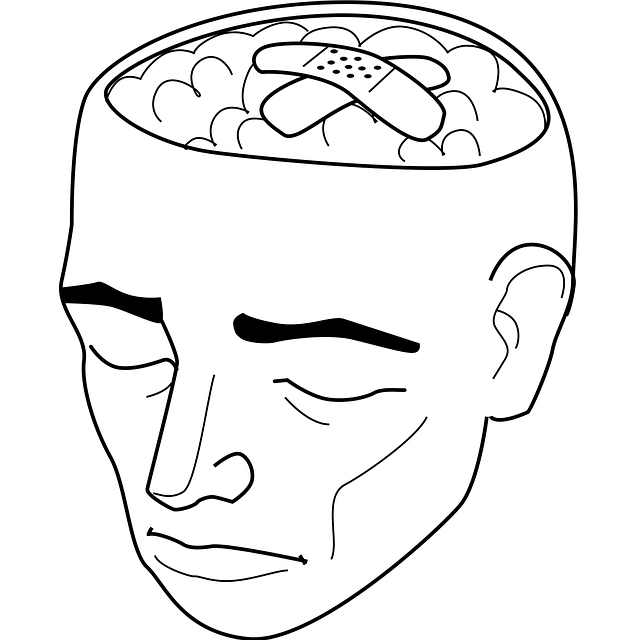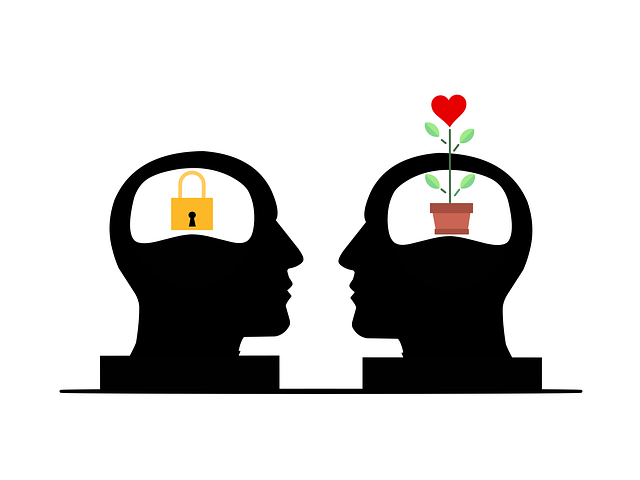Mental wellness is a cornerstone of a child's development, requiring early identification and intervention for issues like anxiety, depression, and Attention Deficit Disorder (ADD) or Attention-Deficit/Hyperactivity Disorder (ADHD). Tailored therapy sessions help children navigate emotions, improve focus, and develop healthy coping mechanisms. Key indicators of ADD/ADHD include focus challenges, impulsivity, and hyperactivity, which can disrupt school and social life. Parents play a crucial role in normalizing mental health conversations and recognizing signs early on. Specialized evaluations and interventions, such as therapy and community outreach programs, are vital for managing these conditions effectively, fostering resilience, and reducing stigma. Healthcare providers must be trained in cultural competency to offer compassionate care tailored to diverse needs.
Mental wellness is a cornerstone of overall health, especially during childhood. This article explores various aspects of promoting and nurturing children’s mental health. We delve into understanding mental wellness in young minds, recognizing key symptoms of conditions like ADD/ADHD, and the crucial role therapy plays. Additionally, it offers practical strategies for parents to foster healthy minds, along with creating environments that thrive on mental well-being. Discover expert insights on evaluations and therapeutic approaches tailored for children with ADD-ADHD.
- Understanding Mental Wellness in Children
- Recognizing ADD/ADHD Symptoms and Evaluations
- The Role of Therapy in Promoting Mental Health
- Strategies for Parents: Supporting Children's Mental Wellness
- Creating a Thriving Environment for Healthy Minds
Understanding Mental Wellness in Children

Mental wellness is an essential aspect of a child’s overall development, encompassing their emotional, psychological, and social well-being. It’s crucial to recognize that children, just like adults, can experience mental health challenges, such as anxiety, depression, or attention disorders like ADD/ADHD. Early identification and intervention are vital to support these young minds. Through therapy sessions tailored for children, professionals can help them navigate and manage their emotions, improve focus, and develop healthy coping mechanisms.
In the context of mental illness stigma reduction efforts, promoting mental wellness in children is a proactive step. Educational initiatives and open discussions can foster understanding and empathy, encouraging support rather than judgment. Moreover, regular evaluations for ADD/ADHD and other potential mental health concerns ensure that children receive the necessary therapy for their specific needs. The production of engaging mental wellness podcast series or interactive online resources can also contribute to emotional well-being promotion techniques, making learning about mental health accessible and relatable for young audiences.
Recognizing ADD/ADHD Symptoms and Evaluations

Recognizing ADD/ADHD symptoms is a crucial step towards fostering mental wellness in children. Children with Attention Deficit Disorder (ADD) or Attention-Deficit/Hyperactivity Disorder (ADHD) may exhibit challenges in focusing, impulsivity, and hyperactivity. These symptoms can significantly impact their daily lives, affecting performance at school, interactions with peers, and overall emotional regulation. Early identification is key; parents and caregivers play a vital role in observing these signs, which may include difficulty completing tasks, frequent daydreaming, restlessness, or excessive talking.
Evaluations for ADD-ADHD typically involve comprehensive assessments conducted by qualified professionals. These evaluations may encompass interviews, behavior observations, and standardized tests to pinpoint specific challenges. Therapy for children with ADD/ADHD often includes behavioral interventions, cognitive-behavioral therapy, and structured support in academic settings. Additionally, organizations specializing in mental wellness offer stress management workshops and trauma support services tailored to address these unique needs, promoting a healthier and more balanced life for affected individuals.
The Role of Therapy in Promoting Mental Health

Therapy plays a pivotal role in promoting mental health and well-being, especially for children. Through various therapeutic modalities, professionals can help young individuals navigate emotional challenges, understand their behaviors, and develop healthy coping strategies. For children with conditions like Attention Deficit Disorder (ADD) or Attention Deficit Hyperactivity Disorder (ADHD), therapy offers a safe space to address unique concerns. Specialized evaluations and tailored interventions focus on improving attention, impulse control, and hyperactivity, fostering better academic performance and social interactions.
Beyond managing specific disorders, therapy encourages the development of compassion cultivation practices, self-care strategies, and mental wellness coaching programs. These approaches empower children to build resilience, enhance self-awareness, and cultivate positive relationships. By integrating evidence-based techniques into their lives, children can learn to manage stress, regulate emotions, and promote long-term mental wellness.
Strategies for Parents: Supporting Children's Mental Wellness

Promoting mental wellness in children is a multifaceted task for parents, but with the right strategies, they can foster a supportive environment for their child’s overall well-being. One key approach is to normalize conversations about emotions and mental health. Encourage open dialogue by sharing personal experiences, which can help reduce the stigma surrounding mental illness. This creates a safe space for children to express their feelings honestly.
Additionally, parents can play a vital role in recognizing signs of potential mental health issues like ADD-ADHD. Early identification is crucial for successful therapy and support. Regular check-ins, along with observations of behavioral changes, can alert parents to any concerns. Implementing a Community Outreach Program focused on Mental Illness Stigma Reduction Efforts can also provide valuable resources and connect families with specialized professionals who offer tailored evaluations and therapeutic interventions, ensuring every child receives the care they need.
Creating a Thriving Environment for Healthy Minds

Creating a thriving environment for healthy minds is paramount to fostering mental wellness promotion among children and adolescents. This involves cultivating spaces that nurture emotional well-being, encourage open dialogue, and provide accessible resources for support. Integrating therapy for children with Attention Deficit Hyperactivity Disorder (ADD-ADHD) evaluations can be a significant step in creating such an environment. By addressing specific needs and challenges, these interventions enable children to develop essential coping strategies and build resilience.
Healthcare providers play a pivotal role in this process, and ensuring they receive comprehensive training in cultural competency is crucial. This equips them with the skills to offer compassionate cultivation practices tailored to diverse populations, enhancing the inclusivity and effectiveness of mental health services. The broader community can contribute by advocating for increased Mental Health Awareness, breaking down stigma, and promoting understanding, ultimately creating a supportive ecosystem where every individual feels valued and empowered to prioritize their mental wellness.
Promoting mental wellness in children involves a multi-faceted approach, from understanding their unique needs to implementing effective strategies at home and school. Recognizing symptoms of conditions like ADD/ADHD through thorough evaluations is crucial, as early intervention with appropriate therapy can significantly impact a child’s long-term mental health. By fostering a supportive environment and utilizing evidence-based practices, parents and caregivers can empower children to thrive and develop resilient coping mechanisms. Integrating these strategies, including therapy tailored for children’s specific needs, ensures a brighter future where mental wellness is prioritized and nurtured.










